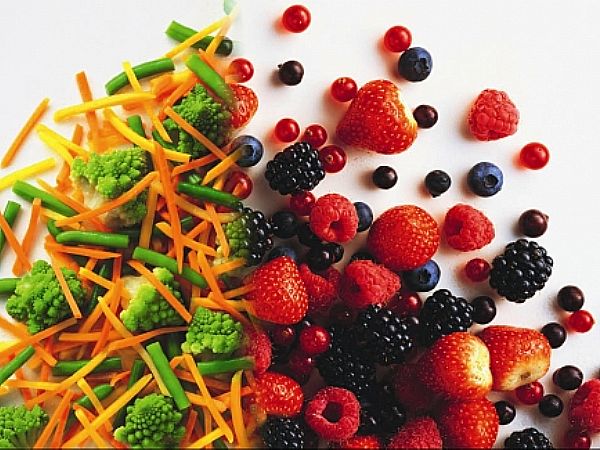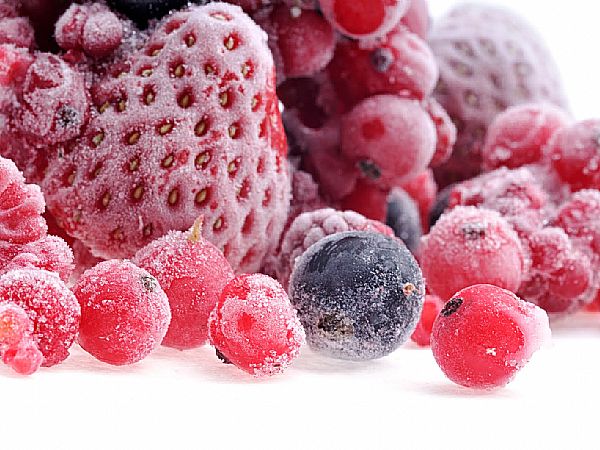Some vegetables and fruits lose flavor and vitamins when frozen, but for some, the differences are minimal. In winter, it is recommended to eat such vegetables because there are no other vitamins, and in summer, you can quickly make ice cream, a refreshing smoothie, or a fruit salad from them. It doesn’t matter if you combine fresh with frozen, as frozen fruit is much better for your stomach than ice. Also, any drink becomes watery with ice, but not with frozen fruit.
1. Blueberries
Blueberries are rich in vitamins C and E, even when frozen. Additionally, a cup of blueberries contains only 71 calories, which is also good for those who are dieting. And also: did you know that blueberries eliminate facial wrinkles? Blueberries are also very good if you get sunburned.
2. Cherries
Cherries have a lot of antioxidants and are a real balm for those under stress. Cherries also do not lose much of their nutritional value when frozen. Moreover, some people experience stomach problems (bloating) with fresh cherries, but not with frozen ones. In extreme summer heat, the best combination is freshness and coolness.
3. Peaches
Peaches are very good for dieting because they make you feel full, have a moderate amount of sugar, and are rich in vitamins A and C. Peaches also have a beneficial effect on skin regeneration, and more than frozen, they can be delicious as a compote, which can also be very well chilled.
4. Spinach
Spinach is still the vegetable with the most iron and also has many antioxidants and anti-inflammatory properties. Its properties do not change significantly when frozen, but it is good to know that cooked spinach has more iron than raw. If you want to eat it raw, combine it with foods that bind iron, such as poultry, fish, broccoli, and even oranges.
5. Broccoli
Broccoli helps a lot in lowering cholesterol, detoxifying, has a beneficial effect on the liver and stomach, contains a lot of vitamins A and C, and is a fundamental food in the fight against anemia.
6. Blackberries
Studies show that blackberries have twice as many antioxidants as blueberries, strawberries, or raspberries. A cup of blackberries contains 8 grams of fiber and manganese, which is good for strengthening muscles and bones. Blackberries do not lose much of their nutritional value even when frozen.
7. Artichokes
With their sweet taste, artichokes provide the body with fiber, a lot of proteins, fats, phosphorus, potassium, iron, calcium, vitamins A, B, E, and K, and important sodium. You will hardly find such a versatile vegetable, and preserved and frozen artichokes retain most of their positive properties. Artichokes are definitely a gourmet specialty that we don’t eat enough of.
Datum: 30. JUL 24 - GOOD TO KNOW
The Best Frozen Fruits and Vegetables
It’s true that we’re in the middle of summer when fresh vegetables and fruits are plentiful, but still, in the hot summer months, something cold is also nice. For example: frozen fruit ...

(fw)
 Would you like to be informed about news on the website?
Would you like to be informed about news on the website?
Just enter your e-mail
|
Copyright (c) Foodwhisper.com March 2018 |
π | Contact: info@foodwhisper.com |
About us | Facebook |  |









